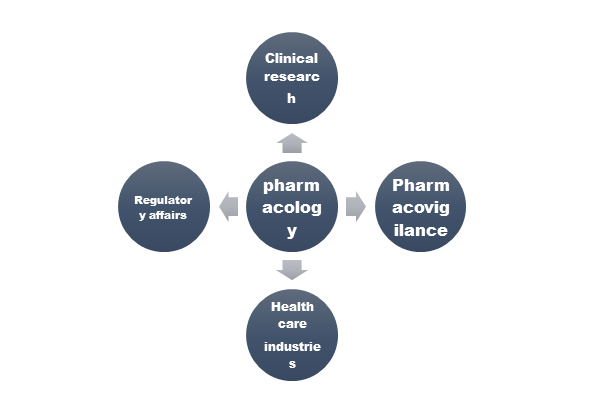



OMEGA COLLEGE OF PHARMACY offers Master of Pharmacy (M.Pharm) program with a specialization in Pharmacology which is a postgraduate degree in pharmacy that focuses on the study of the action and effects of drugs and other chemical substances on living organisms. This program is typically regulated by the Pharmacy Council of India (PCI) and affiliated to Osmania University.
This program is designed to provide in-depth knowledge of pharmacological principles, drug development, and their effects on the human body. Below are the course details for an M.Pharm in Pharmacology:
Duration: The M.Pharm in Pharmacology program usually has duration of 2 years, divided into four semesters.
Eligibility Criteria: To be eligible for admission to this program, candidates typically need to have completed a Bachelor of Pharmacy (B.Pharm) degree from a PIC-approved institution with a minimum aggregate score, often around 55% to 60%. Some institutions may also require candidates to have a valid Graduate Pharmacy Aptitude Test (GPAT) score and POST GRADUATION COMMON ENTRENCE TEST (PGCET).
Course Curriculum: The curriculum for M.Pharm in Pharmacology may include the following subjects and topics.
Pharmacological Principles: Study of the fundamental principles of pharmacology, including pharmacokinetics, pharmacodynamics, and drug-receptor interactions.
Pharmacological Research Methods: Training in research methodologies and techniques used in pharmacological research.
Clinical Pharmacology: Understanding of how drugs are used in clinical settings, including drug interactions, adverse effects, and dosage adjustments.
Toxicology: Study of the adverse effects of drugs and chemicals on living organisms.
Pharmacovigilance and Drug Safety: Monitoring and reporting of adverse drug reactions and ensuring drug safety.
Experimental Pharmacology: Practical laboratory work to study the effects of drugs on animal models.
Pharmacotherapy: Application of pharmacological knowledge in the treatment of diseases.
Pharmaceutical Biotechnology: Study of biotechnological methods and applications in pharmacology.
Ethics and Regulations in Clinical Trials: Understanding the ethical and regulatory aspects of conducting clinical trials and research involving human subjects.
Pharmacogenomics: Study of how genetics can influence drug responses.
Drug Discovery and Development: The process of drug discovery, design, and development.
Pharmacoeconomics: Evaluation of the economic impact of pharmaceuticals and healthcare interventions.
Assessment: Evaluation in M.Pharm programs is typically based on a combination of written exams, practical examinations, project work, and sometimes viva voce (oral examinations).
Career Opportunities: After completing M.Pharm in Pharmacology, graduates can pursue careers in various sectors, including pharmaceutical research and development, clinical research, academia, regulatory affairs, and more. They can work as pharmacologists, clinical research scientists, pharmacovigilance experts, and in various roles in the pharmaceutical and healthcare industries.
